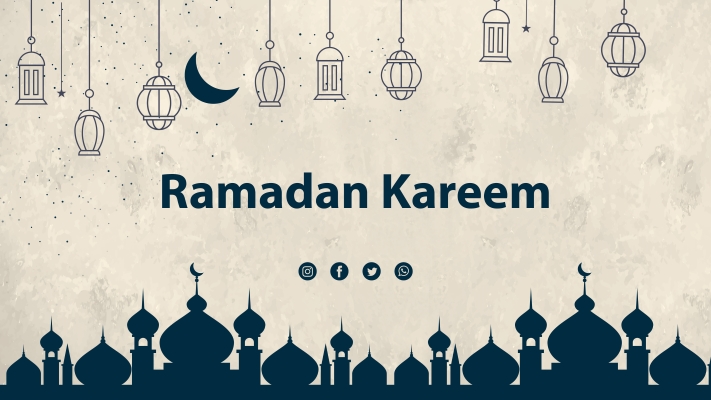
Ramadan Kareem: A Month of Blessings, Reflection, and Generosity
Ramadan Kareem is one of the holiest months in the Islamic calendar, observed by millions of Muslims around the world. It is a time of fasting, prayer, self-reflection, and community, offering believers the opportunity to strengthen their faith and grow spiritually. The term “Ramadan Kareem” translates to “Generous Ramadan,” symbolizing the month’s essence of generosity, mercy, and blessings.
The Significance of Ramadan
Ramadan is the ninth month of the Islamic lunar calendar and holds special importance as the month in which the first verses of the Quran were revealed to the Prophet Muhammad (peace be upon him) through the Angel Jibreel (Gabriel). Fasting during Ramadan is one of the Five Pillars of Islam, making it an essential act of worship for all adult Muslims, except for those who are exempt due to health, age, or other valid reasons.
The Practice of Fasting (Sawm)
Fasting, or *Sawm*, during Ramadan is an act of obedience and devotion to Allah. It involves abstaining from food, drink, smoking, and sinful behavior from dawn (Fajr) until sunset (Maghrib). The pre-dawn meal is called *Suhoor*, while the meal to break the fast at sunset is called *Iftar*. Traditionally, Muslims break their fast with dates and water, following the practice of Prophet Muhammad.
The purpose of fasting is not just physical but also spiritual. It teaches self-discipline, patience, gratitude, and empathy for those who are less fortunate. By experiencing hunger and thirst, believers gain a deeper appreciation for the blessings they have and are encouraged to help those in need.
Prayer and Worship During Ramadan
In addition to fasting, Ramadan is a time of increased prayer and devotion. Muslims engage in the five daily prayers with greater mindfulness and also participate in *Taraweeh*, special nightly prayers performed at the mosque. Many Muslims also read and recite the Quran throughout the month, aiming to complete it before Ramadan ends.
The last ten nights of Ramadan are particularly sacred, especially *Laylat al-Qadr* (the Night of Power), which is believed to be the night the Quran was first revealed. This night, which falls on one of the odd-numbered nights in the last ten days, is considered more powerful than a thousand months of worship. Muslims seek this night by engaging in extra prayers, supplications, and acts of charity.
The Spirit of Generosity and Charity
Ramadan Kareem emphasizes generosity, and many Muslims increase their charitable giving during this month. *Zakat* (obligatory charity) and *Sadaqah* (voluntary charity) are highly encouraged, ensuring that the poor and needy are taken care of. Providing Iftar meals to others, donating to charitable causes, and supporting those in distress are common practices during this period.
Eid al-Fitr: The Celebration of Ramadan’s End
The conclusion of Ramadan is marked by *Eid al-Fitr*, a joyous festival celebrated with communal prayers, feasting, and exchanging gifts. Before the Eid prayer, Muslims give *Zakat al-Fitr*, a special form of charity, to ensure that even the less fortunate can enjoy the celebrations.
In essence, Ramadan Kareem is a time of deep spiritual growth, discipline, and compassion. It is a month that unites Muslims worldwide in devotion, generosity, and gratitude, reinforcing the values of faith, family, and community.

